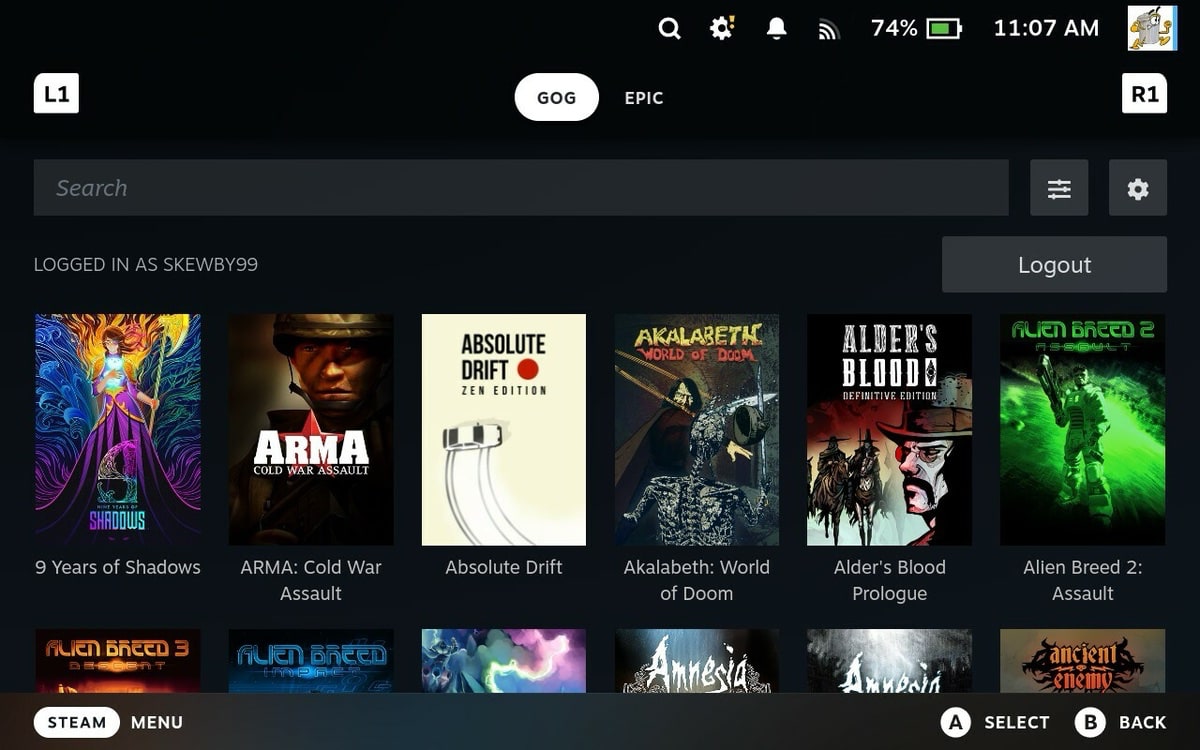The Rising Tide of Handheld Gaming: A Look at Innovations and Integrations
Handheld gaming devices are capturing the gaming sector’s attention like never before. Models such as the ROG Ally and the Lenovo Legion Go are not merely alternatives to the popular Steam Deck; they represent a growing trend in portable gaming innovation. As manufacturers scramble to introduce their Windows-powered handhelds, gaming enthusiasts are wondering whether the latest updates, especially those from Microsoft, stand to optimize gaming experiences further.
 The surge of portable devices in gaming is reshaping the landscape.
The surge of portable devices in gaming is reshaping the landscape.
Microsoft’s New Gamepad Keyboard Feature
In a noteworthy development, Microsoft has rolled out a Gamepad Keyboard feature in its latest Windows Insider build. This innovative layout promises faster typing for users employing Xbox-standard controllers on their portable devices, enhancing overall usability.
“This update starts the rollout of a new Gamepad keyboard layout for the on-screen keyboard,” notes the Windows Insider blog. By allowing gamers to input text more swiftly, this update positions the Windows-powered gaming handhelds as viable contenders against competitors like the Steam Deck, which has traditionally dominated this segment.
With this feature, essential hardware buttons on the controllers can now function as shortcuts for typing tasks; for instance, the X button is assigned to backspace while the Y button acts as the spacebar. The design of the software keyboard, arranged in a grid layout, addresses the high demand for rapid navigation, reflecting a keen understanding of gamer needs.
While these developments are promising, the underlying question remains whether Windows 11 is entirely suited to low-power gaming devices. Issues surrounding custom interfaces, multiple launchers, and the necessity of resource-heavy operating systems continue to vex both gamers and developers alike. This explains why, even with new updates, Valve’s Linux-based Steam Deck maintains a loyal following among power users.
The Junk Store: Simplifying Game Access
In parallel with Microsoft’s advancements, a new application named Junk Store aims to streamline the game-launching experience for Steam Deck users. By integrating directly with Steam, this upcoming plugin promises to allow players seamless access to their favorite titles from stores like GOG and the Epic Games Store without navigating through numerous additional launchers.
 An interface that could enhance gamers’ experience on the Steam Deck.
An interface that could enhance gamers’ experience on the Steam Deck.
Developers have yet to finalize the pricing for the Junk Store, but they assure users that the Decky plugin will remain free to use. This aligns well with gaming trends favoring community-based, cost-effective solutions. The ongoing Reddit community surrounding the Junk Store could provide a plethora of tips and tricks for installation and usage.
The State of Windows Gaming Handhelds
Returning to the broader integration of Windows in handheld devices, while the potential for greater functionality has been highlighted with the Gamepad Keyboard, many challenges continue to exist. Errors, operating inefficiencies, and competition from dedicated gaming systems cannot be dismissed lightly. Users are often left frustrated, with their gaming experience hindered by performance drops when utilizing Windows for gaming tasks.
For instance, Valve’s adoption of the Linux-based SteamOS has spawned a wave of SteamOS derivatives, drawing users dissatisfied with Windows’ performance. Many have resorted to creating custom versions of SteamOS optimized for their specific handheld models, showcasing the versatility and adaptability of the Linux platform.
A Compelling Future
As the lines between handheld gaming and traditional console experiences continue to blur, innovations like the Gamepad Keyboard for Windows devices and the Junk Store for Steam Deck users represent critical steps toward a user-friendly future for portable gaming. These developments not only enhance gameplay but also contribute to a richer gaming landscape.
Gaming handhelds are fast evolving into multifunctional devices that could reshape how we approach both casual and dedicated gaming. Looking ahead, the success of these devices may ultimately depend more on user experience than raw performance. Harnessing the expectations of modern gamers—be it through interface innovations or improved access to games—will dictate the future trajectory of the handheld gaming industry.
In conclusion, while significant challenges remain within the Windows ecosystem, the synergy between hardware improvements and the emergence of creative software solutions like the Junk Store signals a promising horizon for gaming enthusiasts. Whether Windows can harmoniously coexist with handheld gaming remains to be seen, but for now, players have plenty to look forward to in the realm of portable play.
Conclusion
The world of handheld gaming appears poised for an exciting evolution, defined by both technological advancements and community-driven solutions. As we observe Microsoft and other developers respond to the challenges of the gaming market, one thing becomes clear: the spirit of gaming is undoubtedly alive, thriving, and expanding into new dimensions. Stay tuned as the future unfolds!















